Clint Smith
What We Know in the “Marrow of Our Bones”
This phrase recurs throughout Clint Smith’s writing: “in the marrow of our bones.” It is an example of how words can hold encrypted wisdom — in this case, the reality that memory and emotion lodge in us physically. Words and phrases have carried this truth forward in time long before we had the science to understand it.
Clint Smith is best known for his 2021 book, How the Word Is Passed, but he is first and foremost a poet. He and Krista discuss how his various life chapters have been real-world laboratories for him to investigate the entanglement between language and the intelligence of the body — and the related entanglement between history and place. His poetic sensibility has singularly opened readers to approach a generative reckoning with American history — on whatever side of that history our ancestors stood.
Clint Smith has a way of making reckoning possible at a humanizing, softening, bodily level — in the marrow, you might say, of our bones.
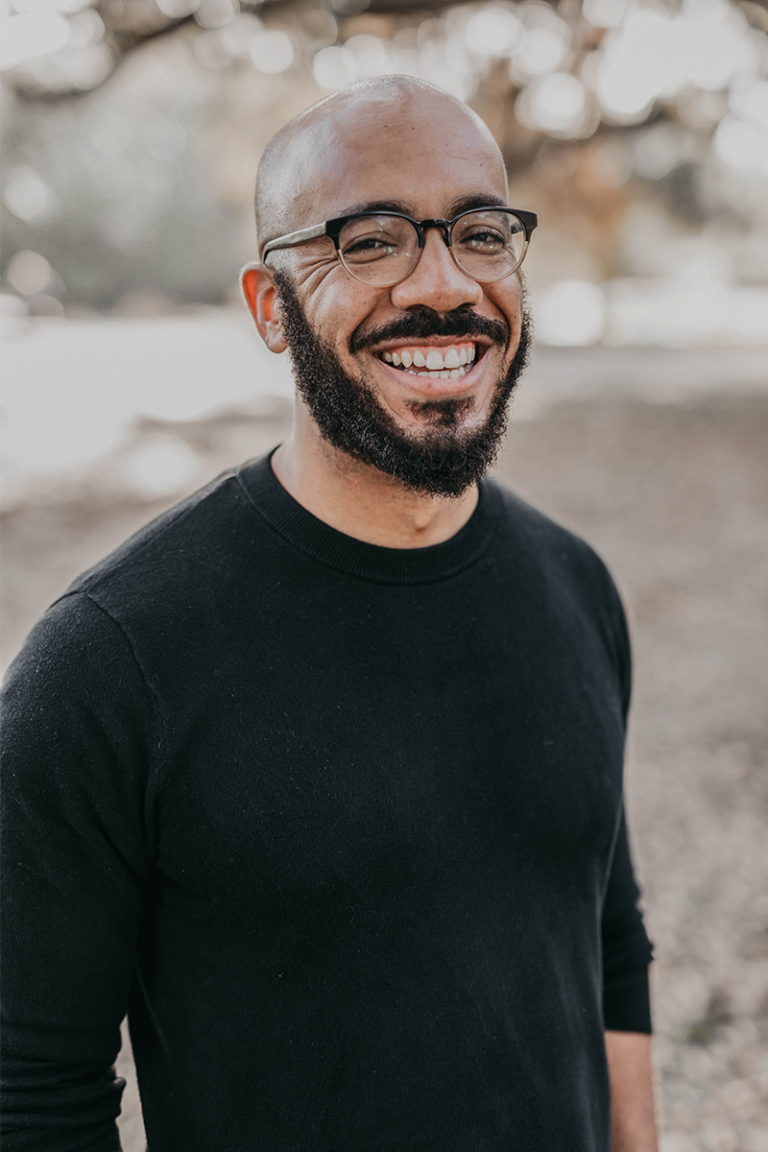
Image by Carletta Girma, © All Rights Reserved.
Guest
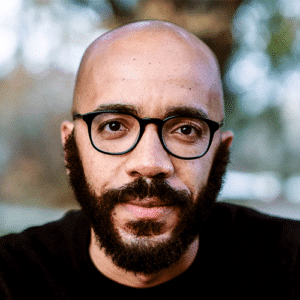
Clint Smith is a staff writer at The Atlantic. His narrative nonfiction book, How the Word Is Passed: A Reckoning With the History of Slavery Across America, won the National Book Critics Circle Award for Nonfiction and many other honors. His poetry collections are Counting Descent and Above Ground. Image by Carletta Girma.
Transcript
Transcription by Alletta Cooper
Krista Tippett: There’s an evocative phrase that recurs throughout Clint Smith’s writing — the phrase is “in the marrow of our bones.” This to me is an example of how words can carry almost encrypted wisdom — in this case, the truth that memory and emotion lodge in us physically. And words and phrases have carried this insight forward in time long before we had the science to understand it.
And I’ve been following Clint Smith for a few years, first through his wonderful book How The Word Is Passed. I thought I would speak with him about the physicality of his approach in that book, to know and grapple with — and beyond — the American history of slavery. But as I delved into the fullness of his work, I found that he also, and I would say first and foremost, is a poet. And that he’s had many life chapters that have been real-world laboratories for him to investigate the entanglement between language and the intelligence of the body, and the related entanglement between history and place: laboratories like a high school classroom, teaching in prison to people facing life without parole, and pilgrimage to historical monuments.
In a revelatory way, through all of this, I find Clint Smith illuminating why poetry helps us get into our bodies and the particular wisdom we can access there. A few of his poems become a wonderful part of this conversation. And I think it is his poetic sensibility that has singularly opened readers to approach a generative reckoning with American history — on whatever side of that history our ancestors stood and participated. Clint Smith has a way of making reckoning possible at a humanizing, softening, bodily level — in the marrow, you might say, of our bones.
I’m Krista Tippett, and this is On Being.
[music: “Seven League Boots” by Zoë Keating]
Clint Smith is a staff writer at The Atlantic. His narrative nonfiction book, How the Word Is Passed: A Reckoning With the History of Slavery Across America, won the National Book Critics Circle Award for Nonfiction and many other honors. His poetry collections are Counting Descent and Above Ground.
Tippett: So one thing I wanted to share with you is that I think the producer you’ve been dealing with is Kayla Edwards, and you probably haven’t made this connection, but she was the opinion section editor of the Davidson Newspaper, like you.
Smith: Oh, wow.
Tippett: I think you met her a couple of years ago and took a picture and shared it on Twitter. Anyway.
Smith: I remember that.
Tippett: Do you?
Smith: Oh my gosh.
Tippett: And I asked her — because she put this in the prep — and I said, “Did you tell him? Did you remind him?” She said, “No.” So I want you to know that as we start.
Smith: And now she works for you all?
Tippett: Yeah. And she’s on this line somewhere.
Heagle: She’s listening in.
Smith: That’s phenomenal.
Tippett: Yeah, it’s very exciting.
Smith: Hello, hello. Oh, that’s so cool. Yeah, I got such a kick out of that. I think that was five or six years ago now.
Tippett: It feels like a nice personal connection here. So she’s excited and we’re all excited.
So, I think — I never quite know what the shape of an interview will be until I actually do the prep, even though I might think I know, and this time something really emerged that may be a little different from what I thought or from what you’ve done before. But I hope we can have a little adventure here.
Smith: I will follow you wherever we go.
Tippett: Okay. [laughs] So as you know, basically what we do is our lens on everything is the human condition, and then we can pick up any subject and look at it in that way. And you very importantly were born and raised in New Orleans, and then, very dramatically, was it your senior year in high school that Hurricane Katrina happened?
Smith: It was three days into my senior year of high school.
Tippett: I kind of have this picture of you — three days into your senior year in this place where you and your family were so rooted, and then you end up in Houston in a new world and new school at that moment in your life when we’re all on a kind of cusp of catharsis anyway. I know sometimes you invoke physics and you’re as interested in those things as I am. It almost feels like you kind of stepped into this multiverse version of what your life might’ve been. I wonder how that felt to you, that drama.
Smith: Yeah. I think in so many ways I’m still understanding and unpacking the repercussions and implications of what Katrina meant in my own life, in the life of my family, and the life of my city. And I just recently turned 35. Hurricane Katrina was when I was 17, so this past year, I had been thinking a lot about how it sort of bifurcated my life. It was half a lifetime ago that I was displaced in that way. And I think having been removed from New Orleans so suddenly, so unexpectedly, so violently in many ways, what I do think it did was sort of give me a deeper appreciation for the way that the sensibilities of New Orleans, the texture of New Orleans, the culture of New Orleans remained a part of me, even when I didn’t know it was still a part of me because it felt like I never got almost a sense of closure.
My group of friends and I from high school will talk often about just what our senior year would’ve been or could have been. It’s the culmination of this lifetime of childhood memories and opportunities and it felt like we were moving into our fullest selves, that we had a sort of more grounded sense of who we were, who wanted to be. And so I do think sometimes about what — you mentioned the sort of multiverse — sometimes I imagine what an alternative reality in which there was no Katrina, what sort of shape my life would’ve taken on. And it’s obviously impossible to know, but it is something I think about, not with any sort of regret, mostly with just a sense of curiosity.
Tippett: I actually wonder — at the end — you continue to write about this so clearly as you say, it’s something that’s with you. And I suspect that you’ll be processing it for all of your days. One thing that’s interesting to me is you’ve also written essays about it, but I think that in this story, this part of you is such an amazing example of how much poetry can convey in so few words.
So I was wondering if you might read this poem from Counting Descent, which is on page 45, “On Observing My Home After the Storm.” Would you set the scene for this poem?
Smith: It’s so interesting to return to old collections and old work and to think about where you were when you wrote this. I wrote so many of these poems over a decade ago, and I can’t remember the last time I read this poem either to myself or out loud, but when we returned to my home in New Orleans for the first time, it was in October, I believe, October or November following the storm that had happened in August. And for weeks, for months, 80% of the city had been underwater and our home was included in that. And so writing for me is and always has been an attempt to capture a moment in time, to capture a feeling, capture an observation, capture a conversation that serve as a sort of time capsule that allows me to remember who I have been in relationship to the world around me. And this poem is an attempt to have done so.
“On Observing My Home After the Storm”
I.
The smell
so pungent you can see it,
the fermentation of sky
prickling at your skin.
An alloy of brackish & sewer water
stinging nostrils, the residue of cries
for help.
Eyes unprepared for this
sort of wreckage.
The maggots demarcate the space
between what was & never will be
again.
Steel door hinges split at the seam.
Every wall, a groundswell of lusterless green.
Glass has meandered
across the floor,
a cacophony of shattered skin.
The overturned dinner table
sits on its side
as if to protect the rest of the house
from the night it knows will come.
The floorboards do not creak,
they whimper—
distraught by all they could not prevent.
II.
But what are these words
but an empty lyric?
What then is anything,
beyond the language we give it? What else do we have
to describe the carnage we see
but all that is woefully inadequate?
Tippett: That line, that question — and of course, poetry is such a wonderful container for questions: “What then is anything, / beyond the language we give it?” That is such a striking question. And I just wonder, what does that question mean to you? How do you start to answer it?
Smith: I think it’s something I sort of wrestle with all the time. As I said, writing is almost an act of mindfulness for me. It’s an act of being present — of being present with my memories, of being present with that which is in front of me and attempting to use language as a way to sort of home in on the specificity, on the granularity, on the minutia, the specific texture of what a feeling is, what a moment is, what an observation is. And I think it’s something that I’m interested in, both in the context of language but also in the context of art. And a lot of my nonfiction work, my journalistic work, I’ve been thinking a lot about monuments and memorials and museums. And I think whether it be visual art, whether it be language, I’m always interested in the extent to which our efforts to remember our past, our efforts to understand what we see in front of us, if those attempts at language or attempts at art can ever fully capture what these things are or what these things have been. And I don’t know that they can, but I also don’t know that that means that we stop trying.
Tippett: If I think about some of the different places you’ve inhabited in your professional life, and if I think about them as laboratories where you’re working through some of these questions that you’ve already been surfacing — your becoming a high school teacher feels like it continues to be something that is just absolutely central to your identity, how it set you off on everything you did after that. I would love for you to just introduce Paulo Freire to those of us — who is really a Brazilian educator and philosopher who’s really formative, in I think a way of not just thinking about educating, but thinking about life and everything you have continued to do. What was that formation for you?
Smith: I think you’re spot on. Being a high school English teacher, it helps shape everything for me. I feel very lucky to read and write and think for a living, but man, sitting in a high school classroom with a bunch of teenagers and just talking about books was — it was the best job I ever had. It was so fulfilling. It was so remarkable to sit with a group of 15- and 16-year-olds talking about the way that a book is in conversation with the various facets of their own lives. And to see that that could serve as an entry point for them to understand the way that their lives are in conversation with one another in ways that might’ve never been possible without that text, in ways that might’ve never been possible without that one sentence in that one paragraph that one student pointed out in a way that illuminated something for everybody else in that classroom. Those specific moments of magic were so — there’s nothing like it.
And Paulo Freire, he is a Brazilian scholar and educator who, as you say, was incredibly formative for me. I read his book, perhaps his most popular text, Pedagogy of the Oppressed. And the essence of that book is thinking about how part of the role of education is to help people who have been subjected to violence, who have been subjected to oppression, who have been subjected to despair — how education can be a way to help them understand that the world is social construction and thus can be reconstructed and deconstructed and made into something new. And that once you understand that — part of what Freire talks about is — it helps disabuse you of the idea that your station in life is something that is sort of inevitably a facet of who you are. And for me, that idea is so freeing.
It’s so profound because I remember — I remember being a kid growing up in New Orleans in the ‘80s and ‘90s and just being inundated with messages about all the things that were wrong with Black people and that the reason New Orleans had so much crime and so much poverty and so much violence and so many people in prison were because of things that were wrong with Black people and things that Black people had failed to do.
And I knew it was wrong, but I didn’t know how to say it was wrong. I didn’t have the language, I didn’t have the toolkit. I didn’t have the historical context with which to push back against it. It was a sense of paralysis almost. And I knew the way that books had freed me in that way, and I wanted to bring that to my students to the extent that I could.
I taught in Prince George’s County, Maryland, a school that was predominantly Black and Latino, a school that was predominantly students on free and reduced lunch, students who were undocumented, students who were in and out of the criminal legal system. And I wanted the conversations we had in our class to help them understand that the reason their communities looked the way that they did, again, were not inevitable, but were the result of decisions that people had made.
Tippett: I feel like what’s coming through here is language as more than mere words, language as power. To have the language to name something — or not to have it — is also about how one can move through the world and move the world.
You’ve written and spoken about an interesting kind of transition you made following on that approach you were taking to seeing the world that your students inhabited and how it constricted them. And you’ve talked about how you, for a while, you wanted to go head-on to the issues, to these societal problems and these societal constructions. And you started to find that that actually wasn’t the way or the only way for them to do the work, to actually step into that agency.
You’ve talked… Let’s see what you talked about. You found that you had to actually draw out their identities. Would you say some more about that?
Smith: Yeah, I think another way of putting that is that I came in real hot.
[laughter]
Tippett: Okay.
Smith: I read a lot of Paulo Freire, and I was a young 22-year-old teacher, and I came into my 10th grade English class. And I remember there was this moment where my students were walking into the classroom on the first day, and everybody sat down and I went to the board. I very dramatically grabbed a piece of chalk. I think I had watched too many Denzel Washington movies. And I grabbed this piece of chalk and I wrote on the board, “Mass incarceration. School-to-prison pipeline. Immigration reform. Climate change,” and just kept writing all these different things.
And then, I turned around and I put the chalk on the — very dramatically — kind of threw it on the ground. And I was like, “This year we’re going to solve all that.” And they just looked at me and were like, “Man, where’s the worksheet? What are you talking about? Who is this kid who’s not that many years older than us in here doing a terrible Denzel Washington impression?”
And I think that was the beginning of me realizing that these kids are kids, which is to say that they’re human and they’re full of complexity and three-dimensionality. And that they are not simply avatars of political ideology, or they are not simply people who will look at an issue and see it exactly in the same way that I do. And so, I think that part of what I realized as I wrote there was that I had to step back. And before books and literature and history could be used as a way to politicize or radicalize young people, that books had the opportunity to help young people understand who they were. And the sense of a political identity is merely one part of a much broader ecosystem of the self that would develop over the course of our time together, and obviously throughout the course of their lives.
[music: “Fifteen Street” by Blue Dot Sessions]
Tippett: I want to talk about How the Word [Is] Passed, where again, we’ve been talking about word and body and language and who you are and story, and how all of that is intertwined. And one of the distinctive contributions of this book — I don’t know that I saw this word used — but to me, it’s kind of a pilgrimage that you took to places. And you mentioned monuments a little while ago, and it kind of gestated in your mind as statues started coming down, which were symbolic and, of course, not just symbolic, but these physical things. And so, this was really a pilgrimage. It was about history, but it was about standing on certain ground. It was about being physically present to it. Well, first of all, would you talk about just this phrase, “how the word was passed?” — where that came from, why that is the title of the book?
Smith: I think maybe for some context for folks, it might be helpful to understand that the origin story for this book was in 2017 when I watched several Confederate statues come down in my hometown in New Orleans, statues of P.G.T. Beauregard, Jefferson Davis, Robert E. Lee. And as I was watching these statues come down, I was thinking about what it meant that I grew up in a majority-Black city in which there were more homages to enslavers than there were to enslaved people. And thinking about, well, what are the implications of that? What does it mean that to get to school, I had to go down Robert E. Lee Boulevard? To get to the grocery store, I had to go down Jefferson Davis Parkway. That my middle school was named after a leader of the Confederacy? That my parents still live on a street named after someone who owned over 150 enslaved people?
Because the thing is that we know that symbols and names and iconography aren’t just symbols, but are reflective of the stories that people tell. And those stories shape the narratives that communities carry. And those narratives shape public policy, and public policy shapes the material conditions of people’s lives — which doesn’t mean that if you just take down a statue of Robert E. Lee, or erase the racial wealth gap, or you change the name of a Jefferson Davis sign, you create more economically egalitarian schools. But I think it does help us understand the ways that certain communities have been harmed throughout American history, and helps us understand how certain stories are told through the images and the narratives that are represented and embodied by so many of these images.
Tippett: And therefore, the import of starting to shift those?
Smith: Absolutely. And so, I had this moment where I was like, “I am the descendant of enslaved people. My grandfather’s grandfather was enslaved. I grew up in a city that was the heart of the domestic slave trade. And I don’t know enough about the history of slavery in a way that feels commensurate to the impact and legacy that it’s had on this country.” And so, I did feel like I had to go on a sort of pilgrimage. I wanted to go visit monuments and memorials and museums and cemeteries and prisons, and these places that told the story of this history in their bars, in their soil, in the buildings that still stood from that period of time. So yeah, I traveled across the country, visiting all of these different places and examining to what extent these places were reckoning with that history, to what extent they were failing to reckon with that history, and to what extent they were doing something in between.
And for me, the title, How the Word Is Passed, comes from — One of the first places I went was Monticello Plantation, which is Thomas Jefferson’s home in Virginia. And they’ve done a lot of work on trying to excavate the histories and stories of the enslaved people who were held there. Thomas Jefferson owned over 600 enslaved people over the course of his lifetime. And part of what is so fascinating about Monticello is that there’s such an incredible example of how if you are a historical site or a museum, that the story you told yourself about yourself or the story you told the world about yourself five, 10, 20, 30 years ago doesn’t have to be the same story you tell about yourself today. That you can learn and learn about your own history, and recognize that you have a set of responsibilities to tell a set of stories that maybe you hadn’t told before.
Tippett: And just the way you said that, that’s also a description of a life where you are growing more mature and more wise.
Smith: Absolutely.
Tippett: You and I wouldn’t tell the same — and I’m almost 30 years older than you — but I would tell a completely different story of myself now than I would’ve 20, 30, 40 years ago.
Smith: Absolutely. And I think sometimes we think about that feels intuitive for us with regard to individuals…
Tippett: Individuals, yeah.
Smith: …but I think what I wanted to convey in part in the chapter about Monticello is that institutions can do it, too.
Tippett: Yeah, I think it’s human. It is the same pattern at the collective level that it is at the individual level.
Smith: It is. And so, the descendants — they have something called the Getting Word Oral History Project, in which the public historian and researchers at Monticello look for people who are the descendants of folks who were enslaved at Monticello. We have very little from enslaved people because they weren’t allowed to read and write. But what we do have are stories. What we do have are oral histories that have been passed down through generations. And one of the descendants of someone who was enslaved at Monticello said: this is how the word is passed down. And you kind of have these moments as a writer where you just see the title and it’s almost like reading something, you’re reading this long transcript, and it just kind of, stars start to sparkle around it.
Tippett: And again, it’s like “the word,” it’s so much more than a word. It is the reality. It is the truth that is being passed.
There’s something so interesting about the arc of this pilgrimage and the book. It feels to me like at some point you personally went through the same kind of transition in yourself that you made with your students all those years ago; that you went to all these places and you kind of looked at the history from all these different directions. You ended up going back to your own grandparents at the end of the journey.
You wrote, “I had forgotten that the best primary sources are often sitting right next to us.” I feel like you asked them — you have two living grandparents — and I thought you asked them questions that you’d never asked them before. I wonder if you’d just share a little bit of maybe some of what you learned that you were astonished you’d never heard, or known, or internalized before.
Smith: I did have this sort of realization that I spent these years traveling across the country across an ocean, asking strangers to tell me these intimate stories about their lives and their histories. And I realized that I was doing so with a level of intentionality that I had never brought to my own family. And so it felt incumbent upon me that I ask those same sort of questions to the people who have been around me my entire life.
And so I ended up going to the National Museum of African American History and Culture with my grandparents. My grandfather, born in 1930, Jim Crow Mississippi, and my grandmother, born in 1939, Jim Crow Florida. And we’re walking through the museum, and I’m pushing my grandfather in his wheelchair. His cane is laid across his lap, and my grandmother’s walking a few paces ahead of us. And I had this moment where I’m looking at them look at the exhibits in this museum and realizing that so many of the things that are documented in this museum are things that they experienced firsthand. I talked to my grandmother after the museum after we left, and she kept using this refrain. She kept saying, “I lived it. I lived it. I lived it.”
I think about the woman who opened the National Museum of African American History and Culture, a woman named Ruth Bonner, who rang the bell to signal the opening of the museum alongside the Obama family in 2016. And she was the daughter of an enslaved person, not the granddaughter, not the great-granddaughter…
Tippett: Yeah. Right.
Smith: …the woman who opened the National Museum of African American History and Culture in 2016 was the daughter of a man who was born into slavery. As I said, my grandfather’s grandfather was enslaved. So when my six-year-old or my four-year-old sit on my grandfather’s lap, I imagine my grandfather sitting on his grandfather’s lap and I’m just reminded that this history we tell ourselves was a long time ago. It just wasn’t that long ago at all. People talk about —
Tippett: We can touch it. We can literally touch it.
Smith: There are people alive today who knew, who loved, who were raised by people who were born into American chattel slavery. And so the idea that anyone would suggest that this history has nothing to do with our contemporary landscape of inequality, the idea that anyone would suggest that it has nothing to do with what our social, political, and economic infrastructure in this country look like, is being morally and intellectually disingenuous because this history in the scope of human history was just yesterday.
Tippett: I think the contribution you’re helping to make to this reckoning that is before us just to this telling of the truth, is also to help — there’s this phrase that recurs in your writing: “in the marrow of our bones.” It’s this phrase in English, that when you feel something in your gut, you feel it in the marrow of your bones. And it’s actually language that points at how we’re learning, how emotion and memory actually work, that they are embedded physically, but it’s like the language — it’s like the words knew it before we had the science for it.
I feel like we are in this time of where — well, there are all these levels that we have to bring forward. We do have to bring forward the ideas and the stories and the history and the facts and all of that, but there’s also this level of us being able to internalize it at a human level, whoever we are on whatever side of this history our ancestors stood and participated.
I feel like that’s the thing we’re talking about here, this connection between word and story and embodied reality. I feel like that’s what your work kind of helps people, it helps it sink into that level.
I wondered if you would read — I was also so struck with that, how your grandmother kept saying, “I lived it. I lived it.” — and I wondered if you would read in How the Word [Is] Passed this section. It’s the paragraph that starts, “A silence settled between us.”
Smith: “A silence settled between us, and I kept thinking about her refrain. I lived it. I lived it. I lived it. It echoed throughout the room and became the gravity around us. It crept into my ears and made a home in there. I watched the realization wash over her like a tide had risen around her body. There was so much I had not known about my grandmother’s life until this moment. So many painful experiences that she still carried deep in the marrow of her bones. I thought of how easily these memories might have slipped away from her, had we not sat down—these stories might have remained grains of sand at the bottom of an hourglass. I thought about all the ways the world today is at once so different, and not so different at all.
The exhibits at the museum were not abstractions for my grandparents; they were affirmations that what they had experienced was not of their imagination, and harrowing reminders that the scars of that era had not been self-inflicted. When my grandmother said, ‘I lived it,’ what I heard was This museum is a mirror. When my grandmother said, ‘I lived it,’ what I heard was My memories are an exhibit of their own. When my grandmother said, ‘I lived it,’ what I heard was Always remember what this country did to us. When my grandmother said, “I lived it,” what I heard was Don’t let them tell you we didn’t fight back. When my grandmother said, ‘I lived it,’ what I heard was I did not die. I have somehow made it here when so many did not. I escaped the jaws of a cruel thing and lived to tell this story. When my grandmother said, ‘I lived it,’ what I heard was I am still alive.”
Tippett: That’s an incredible passage. When I was reading that, I was also feeling like as a writer that — I may be imagining — I just felt like that must have been an incredible few paragraphs for you to write.
Smith: Yeah. I had just never done anything like that before. I just had never — You spend your whole life surrounded by someone, surrounded by people you love, and then you realize that you’ve only ever known a very brief part of their story.
I think that it’s something I tell educators all the time now. If I had a magic wand, other than paying teachers much more money than they make and giving schools all the resources they need, if I had a magic education wand, I would wish that every history and social studies class would have students interview their elders, their parents, or their grandparents or their great-grandparents…
Tippett: Wonderful. Yeah. The neighbor.
Smith: …or the neighbor who is always sitting on her porch. I just understood — I feel like I understood my grandparents in a way that I simply couldn’t have otherwise.
I remember talking to my grandmother and as she described what she was subjected to. And there’s this moment where she talks about how as a little girl, she’s walking to school on the red clay in Florida, and these white students are passing by on a bus and they start to spit at her. They start to throw food at her, and they call her the N-word. This woman who is a magisterial figure in my life, who is the embodiment of grace and elegance and generosity and kindness. You suddenly — it’s not this 80-something-year-old woman sitting in front of me anymore. Suddenly, it’s this 9-year-old girl. We have these recurring things that keep coming up in our conversation, but it allowed me to see the humanity of my grandmother.
Tippett: Yeah, right.
Smith: The totality of her and the complexity of her in a different way. And the same thing with my grandfather. I feel very lucky to have been able to have these conversations with them. I only wish that I had the opportunity to have had this conversation with their respective spouses before they passed away.
[music: “Our Ears, Deceiverse” by Blue Dot Sessions]
Tippett: I found, as I was reading into you, that you and I have a shared something we’re interested in, which is this question of public memory. I’m currently writing a book that involves Germany. I spent most of my 20s, most of the 1980s, in divided Berlin, and am also pondering how I saw that country reckoning with its history 40 years on from the war, and now 40 years from that, and being able to look at that entire arc.
Also being so aware of myself in my 20s in Germany, and the grappling they were doing with that burden of history was very messy at that point and complicated, but it was ever-present. It was in every conversation. It was in every room. I’m so struck at how I was so — both to them and to myself — was from this much more innocent country. They were from the country that had this crushing guilt of history. I was from the country that wasn’t perfect, but was always getting better.
You also note the Germans were walked through the camps, they were walked through the concentration camps. They were made to bear witness. They were made to remember. There’s a lot of complexity to how the whole world was also watching for them to grapple with this history.
But it has occurred to me — and I feel like you ask a very similar question — if there were these concentrated places of where this atrocity had happened in a concentration of years, but lynchings were kind of town-by-town and tree-by-tree. There’s no single place to walk through. There’s not that concentration of place and of years, but there’s an accumulation across many generations. What would be our equivalent of that kind of reckoning that they’ve done? Just kind of free-flowing with you.
Smith: That’s an important question and one that I’ve been thinking about a lot. And in thinking about a lot now as I am working on a book project that has grown out of my trip to Germany, and my trip to Germany grew out of my examination of monuments, memorials here in the United States. I wanted to understand how — Germany is often lifted up as the sort of exemplar of memory, what an exemplar of a nation-state that has accounted for and has come to terms with, that has demonstrated a sense of regret for what they’ve done and what they did during the Holocaust and World War II more broadly.
So I went there because I wanted to understand what that looked like, and as I’m sure as you know, probably even better than me, having lived there for so long, it is not a singular story.
Tippett: No.
Smith: It’s not a story of like, “Wow, Germany is so great at this. We should be like Germany,” which I think is how sometimes in the United States the narrative exists. I think sometimes from this vantage point, people look at Germany and say, “Why don’t we just do it like Germany? Why don’t we…” — without thinking about the complexities and the unevenness and the sense of disagreement that exists among communities in Germany about how this has been done.
But I think one of the things that motivated me, there’s this essay that W.E.B. Du Bois wrote about his trip that he took to Warsaw, Poland in 1949. Du Bois is the most preeminent Black scholar of the day, perhaps of all time. He is someone who spent his life thinking about the specific contours and manifestation of anti-Blackness in the United States. He goes to Warsaw and he goes to the land where the former Warsaw ghetto, where the Warsaw uprising happened. He’s standing on this land where thousands of Jewish people fought back against the Nazis. He’s standing in this country where three million Jewish people were killed in a matter of years. And he’s standing there and he’s like: I have stood on the land where the KKK has burned crosses. I have stood under the trees where black bodies have been lynched. I have worked my entire life thinking about this question of what white people in America do to Black people and how we can overcome it.
He talks about how he never experienced the kind of feeling that he did when he was standing on that land in Warsaw. He talks about how it stripped him of what he calls a sense of “social provincialism.” It expanded his understanding of the interrelatedness between anti-Blackness in the United States and antisemitism in Europe and allowed him to more fully understand the global contours of state-sanctioned violence and all the various forms that it takes on.
I feel like I’ve had a very similar experience. That’s what going to Berlin and going to Munich, going to Dachau, that’s what those experiences were for me. I’ve stood on plantations. I’ve stood in execution chambers. I’ve stood — put my hand on the poles where enslaved people were held, where they were beaten within an inch of their lives. I put my hands in the soil where lynchings happened — but the feeling I felt when I stood in a gas chamber in Dachau was unlike anything that I had ever experienced before. And I think it was a very sort of Du Boisian moment for me because I think it also expanded my understanding of the interrelatedness and the relationship between the various forms of violence that happened in different geopolitical context and expanded my historical empathy.
It made me feel more proximate to that history. It made that history more intimate. It made it less of a historical abstraction and more real, more tactile, more personal. I think that for me, that is why this has become a sort of larger project for me, whether it be in the context of slavery or in the context of World War II, or anything else. There’s something about putting your body in the place where history happened that reduces the gap between you and that period of time that creates this sort of temporal proximity between you and that history.
Tippett: Gosh, I feel like that’s such a strong summation, I think, of the core of this work, of it as you do it. I want to just raise up this very stunning and shameful reality that you also have lifted up in the context of this discussion — that Angola prison, which is also a place of pilgrimage for you, I would say, is built on the land of a former plantation. You have pointed out in the book, if in Germany today there were a prison built on top of a former concentration camp, and that prison disproportionately incarcerated Jewish people, it would provoke outrage throughout the world. This is not something that is in American awareness.
Smith: It’s not. It’s not. I think it reflects a failure of our collective memory around what slavery was and the sort of reverberations of how it continues to shape our lives today. There was a study not too long ago that talked about how most high school seniors, when asked what the Civil War was about, only a small handful of them said slavery.
Tippett: Yeah. That was shocking to me.
Smith: All you have to do is look at the Declarations of Confederate Secession for a state like Mississippi. In 1861 says, “Our position is thoroughly identified with the institution of slavery, the greatest material interest in the world.” So they’re not vague about why they’re seceding from the union; they’re very clear about it.
But again, part of what I learned in this journey is that for so many people, history is not about primary source documents or empirical evidence. It’s a story that they’re told, and it’s a story that they tell. It’s an heirloom that’s passed down across generations. It’s something where loyalty to an idea, to a family, to a community, to a sense of self, takes precedence over truth.
I think that that prevents us from collectively remembering what slavery was, in a way that would prevent us from building a prison on top of land that was once a plantation, a prison that disproportionately in which 70% of the people who were held there are Black men, and 70% of the people held there are serving life sentences, in a way that we would never allow in a different geopolitical context. There’s a specific American failure that allows that place to exist in that way.
[music: “Latecomer” by Blue Dot Sessions]
Tippett: So, you are now the father of two children?
Smith: Mm-hmm.
Tippett: Of young children in this world. And of course, parenting is the ultimate whole-body, whole-mind, whole-spirit occupation — word, deed, thought, and emotion are all just utterly physical. You’ve written, “My children are both respite from all the tragedy transpiring in the world, and a reminder of how high the stakes are.” I wonder if you’d say some more about that.
Smith: I think about these trips that I took when I was writing How the Word Is Passed, and how I would come back from Angola, or come back from the Whitney Plantation. I spent time standing in a cabin where enslaved people lived, I spent time walking through the fields enslaved people worked in, I spent time looking at the names of enslaved children who didn’t make it past their 50th birthday. I think of my kids, and I think about what responsibility I have to them to tell these stories and to honor these histories so they have a better sense of who they are in relationship to their history, but also so this country can better situate the lives of my children and the lives of each of us more accurately and more humanely.
And so I’ll be thinking about that, and then I will come home and I open the door and my three-year-old, he doesn’t say like, “Man, dad, come sit down, have a cup of tea. It seems like you’re processing a lot right now. You just had this really profound and traumatic and jarring experience. Let’s sit, let’s process this.” [laughter] No. I come through the door and he’s like, “Where have you been? Get on the ground and be a brachiosaurus. It’s time to play.”
And I’m so grateful for those moments like that where my kids sort of take me out of my own head. My kids have made me a much sillier person. They’ve made me a more present person, which isn’t to say it happened automatically. I think I had to proactively remind myself to sit in that presence and not to simply allow the things that are moving through my head all the time to preoccupy me to the point that I don’t fully appreciate what’s directly in front of me.
Tippett: I want to ask you a couple more questions about this and then ask you to read some more poems. But I wonder if just right here, if you would read this “Ode To Those First Fifteen Minutes After the Kids [Are Finally] Asleep,” which is in the Above Ground book, because this is just so — before you’re a parent, the meaning of bedtime, getting to bedtime and post-bedtime.
Smith: Oh, man…
Tippett: It’s page 101.
Clint Smith: You don’t fully appreciate how sleep deprivation is a torture tactic until you have kids. So the poem that precedes this is “Ode to Bedtime,” and then this one is “Ode To Those First Fifteen Minutes After the Kids Are Finally Asleep”:
“Praise the couch that welcomes you back into its embrace
as it does every night around this time. Praise the loose
cereal that crunches beneath your weight, the whole-grain
golden dust that now shimmers on the backside of your pants.
Praise the cushion, the one in the middle that sinks like a lifeboat
leaking air, and the ottoman covered in crayon stains that you
have now accepted as aesthetic. Praise your knees and the evening
respite they receive from a day of choo-choo training along the carpet
with two eager passengers in tow. Praise the silence. Oh, the silence.
How it washes over you like a warm bedsheet. Praise the walls
for the way they stand there and don’t ask for anything.
Praise the seduction of slumber that tiptoes across your eyelids,
the way it tempts you to curl up right there and drift away
even though it’s only 7:30 PM. Praise the phone you scroll through
without even realizing that you’re scrolling. Praise the video
you scroll past of the man teaching his dog how to dance merengue,
praise the way it makes you laugh the way someone laughs
when they are so tired they don’t know if they will ever stand
up again. Praise the toys scattered across the floor, the way you
wonder if it might be okay to just leave them there for now,
since you know that tomorrow they will simply end up there again.”
Tippett: So this phrase: what I want for my children, what we want for our children. I wonder, given how much you’re steeped in the language we use communally, the work we’re doing and not doing communally, the way we educate and impart knowledge around American history and the history of slavery and our racial identities and who we can be to each other in this future, how would you start to talk about “what I want for my children” in this regard?
Smith: I want them — hmm. I just want them to be joyous. I want them to be joyous, and I want them to recognize the larger responsibility that they have, which is to say, I think all the time about how the first enslaved people who came to this country, they came to the British colonies that would become the United States, in 1619. Slavery wasn’t eradicated until 1865, formally anyway.
But what’s also true is that from the moment enslaved people arrived on these shores, they were fighting for freedom, they were fighting for emancipation, they were fighting for liberation. And what that means is that the majority of people who fought for freedom never got a chance to experience it for themselves, but so many of them fought for it anyway because they knew that someday someone would.
And I think about how my life is only possible, how my children’s lives are only possible because of generations of people who fought for something they knew they might never see, but who fought for it anyway because they knew that someday someone would.
And I want my children to recognize that. I want them to hold that. I want them to sit with that, not in a way that’s meant to overwhelm them, not in a way that’s meant to cause them despair, but in a way that is meant to help them accurately situate themselves in this sort of long lineage, this long historical arc that they are a part of. And to remember that that is a part of what should animate how we move through the world, and what decisions we make, and how we treat people, and what we work toward.
And that does not come at the exclusion of or the expense of joy, and love, and laughter, and levity, but part of what I think about all the time is the simultaneity of the human experience, how our lives are both defined by that love, that joy, that laughter, but also defined by anxiety, fear, despair. And somewhere between those is, I think, a responsibility: both recognizing the truth of our past and all that has preceded us, not in a way that’s meant to paralyze us or overwhelm us or trap us in a sense of despair, but in a way that is meant to help us recognize and remember our own agency.
Tippett: Yeah. And I feel like the way you’re describing that would also be true of what you would want for the white children that they’re growing up with.
Smith: Absolutely. I think that’s what I want for my children, but it’s what I want for all children. It’s what I want for all of us. I want all of us to understand that what our lives look like are only because of people who’ve created the circumstances that have given rise to our lives today in ways that are generative and wonderful, and in ways that we’re grateful for, and in ways that we recognize are profoundly unjust, and in ways that are profoundly unfair, and in ways that should not exist in the way that they do. And I think it’s about holding and recognizing and sitting with both of those and figuring out how we move forward collectively.
Tippett: But I do want to ask if there’s anything you want to read — I feel like I’m really keeping you and this is heroic now at this point, this interview. [laughs]
Smith: No, it’s okay. It’s okay. I think because we’ve been talking about — We’ve been talking a lot about a lot of heavy stuff, but I also want to name and reaffirm the joy and the levity and the laughter. So I was thinking maybe “Dance Party.” Let’s see.
Tippett: I see it on page 89. Is that right, in Above Ground? “Dance Party.”
Smith: So I talked about how, for me, poetry is the act of paying attention and the act of capturing a moment, a feeling. And a lot of what we’ve talked about has been on the heavier side, and things that have been capturing those moments, observations, feelings, histories that might elicit anxiety, despair, fear, or speak to violence or oppression. But that’s only part of the human experience. And there are other parts that are worthy of our attention and our gratitude. And one of those things for me is that we have dance parties after we finish our dinner sometimes in our house. And it’s a delight. Unfortunately, my children have no rhythm. It’s fine for a six and a four-year-old, but if it continues through their adolescence, it’ll be devastating for all of us. So everybody listening, please pray for my rhythmless children, that they can get it together. [laughter] But this poem is called “Dance Party.”
“Sometimes in the evenings after dinner,
after the spaghetti has been slurped
and I have bribed the broccoli into their bellies,
I give both of my children… the look.
“When my eyes meet theirs, they know what time it is.
They push in their chairs, they stretch their legs,
and we move the table to the far end of the dining room
to clear space for what we all know is coming.
“Alexa, play the post-dinner dance party playlist.
“And within seconds, Martha Wash’s booming
voice rolls like thunder over our bodies.
“Everybodyyy dance nowwww!
“The electronic keyboard and the drums
meet in the middle of the room like two dinosaurs
ready to claim the kitchen as their own.
Immediately the jumping begins, and my daughter
“is flinging her limbs like an off-beat octopus,
hands slapping the air behind her
as if she is trying to smack anyone
who enters her sacred space.
“I turn around and my son is doing the robot…
or is being eaten by a robot…
or is trapped in a universe where robots take over
the bodies of little boys in peanut butter pajamas.
“Nonetheless, there was a robot somewhere,
“[and] my children, bless them, have not yet learned
how to clap on the 2 and 4
so I laugh, but also cringe, as their small hands
make a mockery of the melody around them.
“Now, halfway through the song, everyone is jumping,
and I, caught up in the ecstasy of this moment, fall
to the ground and convince this no-longer-young
body that it is a good idea to start doing the worm.
“And when my children see me, their eyes become pools
of possibility, and it is clear they see this as a clarion call
to climb onto my back. And now, here we are,
this strange trifecta, this unlikely trio; a robot
“and an octopus riding on the back of a worm
who will certainly need some Tylenol before bed.
[And] it is [at] this moment that their mother comes home.
And when she opens the door everyone is screaming,
“the speakers are blasting and the percussion is shaking
every wall around us. We look up at her, and she looks
down at us, and we have no explanation for this strange
scene, only an invitation for her to join.”
[music: “Eventide” by Gautam Srikishan]
Clint Smith is a staff writer at The Atlantic. He’s the author of How the Word Is Passed: A Reckoning With the History of Slavery Across America. And two collections of poetry: Counting Descent and Above Ground.
The On Being Project is: Chris Heagle, Laurén Drommerhausen, Eddie Gonzalez, Lilian Vo, Lucas Johnson, Suzette Burley, Zack Rose, Colleen Scheck, Julie Siple, Gretchen Honnold, Pádraig Ó Tuama, Gautam Srikishan, April Adamson, Ashley Her, Amy Chatelaine, Cameron Mussar, Kayla Edwards, Tiffany Champion, Juliette Dallas-Feeney, Annisa Hale, and Andrea Prevost.
On Being is an independent nonprofit production of The On Being Project. We are located on Dakota land. Our lovely theme music is provided and composed by Zoë Keating. Our closing music was composed by Gautam Srikishan. And the last voice that you hear singing at the end of our show is Cameron Kinghorn.
Our funding partners include:
The Hearthland Foundation. Helping to build a more just, equitable and connected America — one creative act at a time.
The Fetzer Institute, supporting a movement of organizations applying spiritual solutions to society’s toughest problems. Find them at fetzer.org.
Kalliopeia Foundation. Dedicated to cultivating the connections between ecology, culture, and spirituality. Supporting initiatives and organizations that uphold sacred relationships with the living Earth. Learn more at kalliopeia.org.
The Osprey Foundation — a catalyst for empowered, healthy, and fulfilled lives.
And the Lilly Endowment, an Indianapolis-based, private family foundation dedicated to its founders’ interests in religion, community development, and education.
Books & Music
Recommended Reading
The On Being Project is an affiliate partner of Bookshop.org and Amazon.com. Any earnings we receive through these affiliate partnerships go into directly supporting The On Being Project.






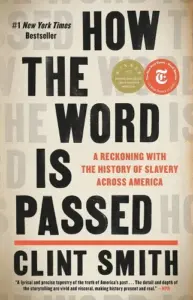
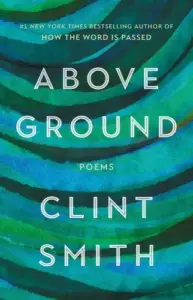
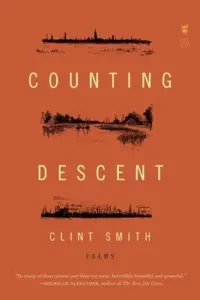
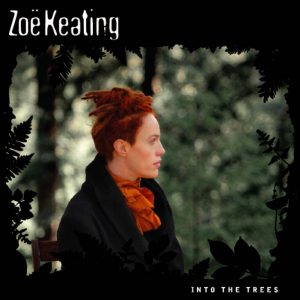
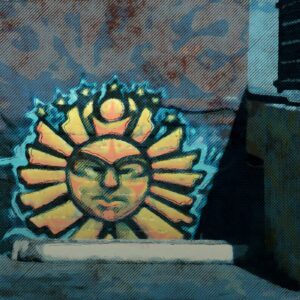
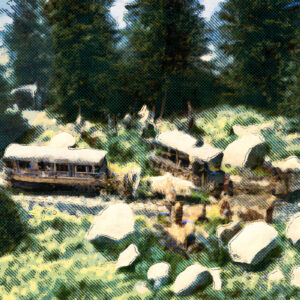



Reflections